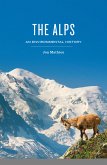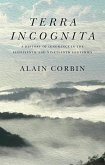This bold and wide-ranging book views the history of humankind through the prism of natural resources - how we acquire them, use them, value them, trade them, exploit them. History needs a cast of characters and in this story the leading actors are peat and hemp, grain and iron, fur and oil, each with its own tale to tell. The uneven spread of available resources was the prime mover for trade, which in turn led to the accumulation of wealth, the growth of inequality and the proliferation of evil. Different sorts of raw material have different political implications and give rise to different social institutions. When a country switches its reliance from one commodity to another, this often leads to wars and revolutions. But none of these crises go to waste - they all lead to dramatic changes in the relations between matter, labour and the state. Our world is the result of a fragile pact between people and nature. As we stand on the verge of climate catastrophe, nature has joined us in our struggle to distinguish between good and evil. And since we have failed to change the world, now is the moment to understand how it works.
Dieser Download kann aus rechtlichen Gründen nur mit Rechnungsadresse in A, B, BG, CY, CZ, D, DK, EW, E, FIN, F, GR, HR, H, IRL, I, LT, L, LR, M, NL, PL, P, R, S, SLO, SK ausgeliefert werden.
"I recommend anything by Alexander Etkind, who is a cultural historian of Russia. His latest book is called 'Nature's Evil' and... it actually goes a very long way to explaining how Russia works."
--Masha Gessen, The New York Times
"Provocative, insightful and informative, Etkind explores the cultural, economic and political institutions built on the humble foundations of commodities such as hemp, coal and wheat. The ideas of matter and the matter of ideas leap to life in his pages. Readers will find themselves rethinking their notions of civilisation, its origins and future."
--Edward Lucas, formerly senior editor at The Economist and author of The New Cold War
"Etkind's book is a treasure trove of ideas about the material, cultural and political lives of natural resources. An utterly original and fascinating blend of intellectual, ecological and moral history. A great read, not to be missed!"
--Nancy Fraser, New School for Social Research, author of Capitalism: A Conversation in Critical Theory
"In detailed chapters on grain, animal products, sugar, hemp, metals, peat, coal and oil, historian Alexander Etkind explores how nature and its commodification has shaped states and societies, as the pursuit of power and wealth has degraded people and despoiled the planet."
--Nature
"Provocative"
--Times Literary Supplement
"eloquent"
--H-Soz-Kult
"This book is a triumph. . . . A must-read for future generations of environmentalists hoping to understand the context of environmental destruction."
--Eurasian Geography and Economics
--Masha Gessen, The New York Times
"Provocative, insightful and informative, Etkind explores the cultural, economic and political institutions built on the humble foundations of commodities such as hemp, coal and wheat. The ideas of matter and the matter of ideas leap to life in his pages. Readers will find themselves rethinking their notions of civilisation, its origins and future."
--Edward Lucas, formerly senior editor at The Economist and author of The New Cold War
"Etkind's book is a treasure trove of ideas about the material, cultural and political lives of natural resources. An utterly original and fascinating blend of intellectual, ecological and moral history. A great read, not to be missed!"
--Nancy Fraser, New School for Social Research, author of Capitalism: A Conversation in Critical Theory
"In detailed chapters on grain, animal products, sugar, hemp, metals, peat, coal and oil, historian Alexander Etkind explores how nature and its commodification has shaped states and societies, as the pursuit of power and wealth has degraded people and despoiled the planet."
--Nature
"Provocative"
--Times Literary Supplement
"eloquent"
--H-Soz-Kult
"This book is a triumph. . . . A must-read for future generations of environmentalists hoping to understand the context of environmental destruction."
--Eurasian Geography and Economics









